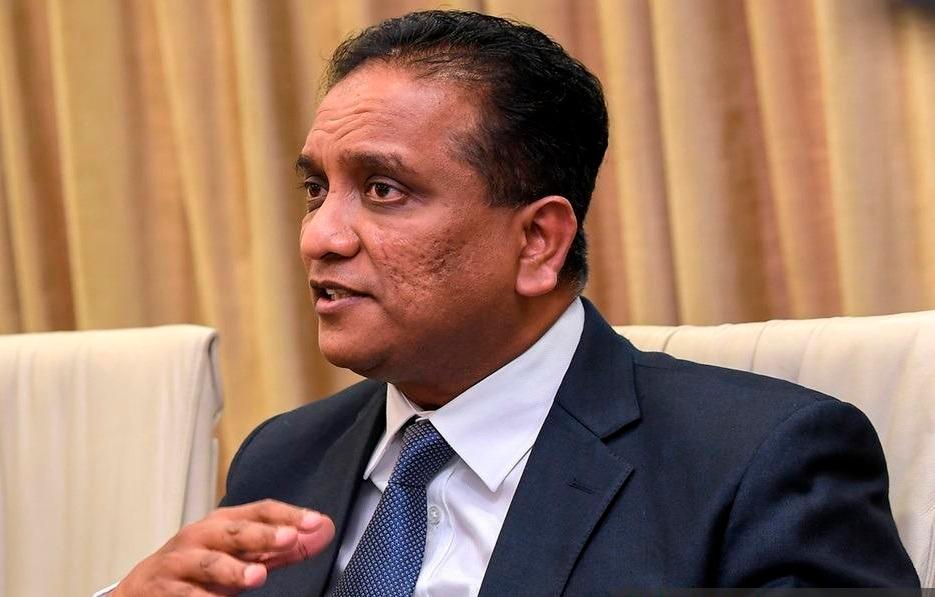KUALA LUMPUR: Malaysia-India trade relations have strengthened significantly over the years, reaching a value of US$16.5 billion (RM73.4 billion) a year, and growing at an impressive annual rate of 8.5% over the past two decades.
Frameworks such as the Malaysia-India Comprehensive Economic Cooperation Agreement and the Asean-India Free Trade Agreement have been pivotal in reducing trade barriers and fostering economic cooperation.
Malaysia External Trade Development Corporation chairman (Matrade) Datuk Seri Reezal Merican Naina Merican said Malaysia’s exports to India have diversified from predominantly palm oil and petroleum products to include high-value electrical and electronic products, reflecting Malaysia’s transition to advanced industries.
India, in turn, has evolved its export portfolio to Malaysia, with petroleum products and engineering goods now leading its exports.
Reezal said Malaysia’s trade performance has shown remarkable resilience.
Total trade reached RM2.63 trillion last year, marking the third consecutive year it surpassed the RM2 trillion milestone. Exports exceeded RM1 trillion, reaching RM1.46 trillion, while imports recorded substantial growth, crossing the RM1 trillion mark for the second time at RM1.212 trillion.
Despite global economic challenges, Malaysia maintained a trade surplus of RM240.06 billion, continuing a 26-year trend since 1998.
“The rise of the Global South highlights opportunities for balanced economic growth and equitable trade systems.
“Malaysia remains committed to strengthening Asean mechanisms, aligning regional priorities with broader global initiatives, and enhancing connectivity with key partners like India.
“Strategic measures under Malaysia’s National Industrial Master Plan 2030 and the National Trade Blueprint will drive manufacturing sector growth, high-value investments, and global competitiveness,” Reezal said at the India-Malaysia Trade KL Conference 2024 on Saturday.
To facilitate trade expansion, he said, Malaysia’s international network, including trade offices in Mumbai and Chennai, is ready to assist businesses.
“Malaysian companies are encouraged to engage with Matrade to leverage trade facilitation services, while foreign companies can rely on Matrade to connect with Malaysian partners. Together, strengthened economic cooperation between Malaysia and India will drive mutual growth and prosperity, ensuring both nations remain key players in the evolving global trade landscape.”
Centre for Economic and Sustainable Development Asia Malaysia acting chairman Datuk Lim Sue Beng said India’s engagement with Asean has grown steadily over the decades, evolving from a Sectoral Dialogue Partnership in 1992 to a Comprehensive Strategic Partnership in 2022.
On the economic front, the Asean-India Free Trade Area, supported by the Trade in Goods Agreement (2009) and subsequent services and investment agreements (2015), has created one of the world’s largest trade blocs. It benefits more than two billion people and has a combined gross domestic product exceeding US$5 trillion (RM22.26 trillion).
Lim said that under Prime Minister Narendra Modi’s Act East Policy, Asean remains central to India’s regional vision.
“Asean is India’s fourth-largest trading partner, while India ranks sixth in the bloc.
“Bilateral trade reached US$131 billion in 2023, up from US$77 billion in 2019. However, India has a significant trade deficit of US$43 billion, which can be attributed to perceived imbalances in trade agreements and its protectionist policies. It further reinforces this by withdrawing from the Regional Comprehensive Economic Partnership,” he said.
Lim noted that India’s limited integration into the East Asia-centric global value chain and relatively underdeveloped manufacturing base challenge its role as a preferred alternative production hub. “Nevertheless, decentralised globalisation creates opportunities for collaboration.”
Improved connectivity, such as the India-Myanmar-Thailand Trilateral Highway and the India-Middle East-Europe Economic Corridor, promises to strengthen regional trade and logistics.
“While geopolitical concerns like the South China Sea disputes persist, Asean remains committed to its Zone of Peace, Freedom, and Neutrality and prioritises economic cooperation through initiatives such as the Asean Outlook on the Indo-Pacific.
“India’s ability to align its commitments with Asean’s economic aspirations will be key to enhancing its role in the region and solidifying its position as a rising power in the Global South,“ Lim said.









